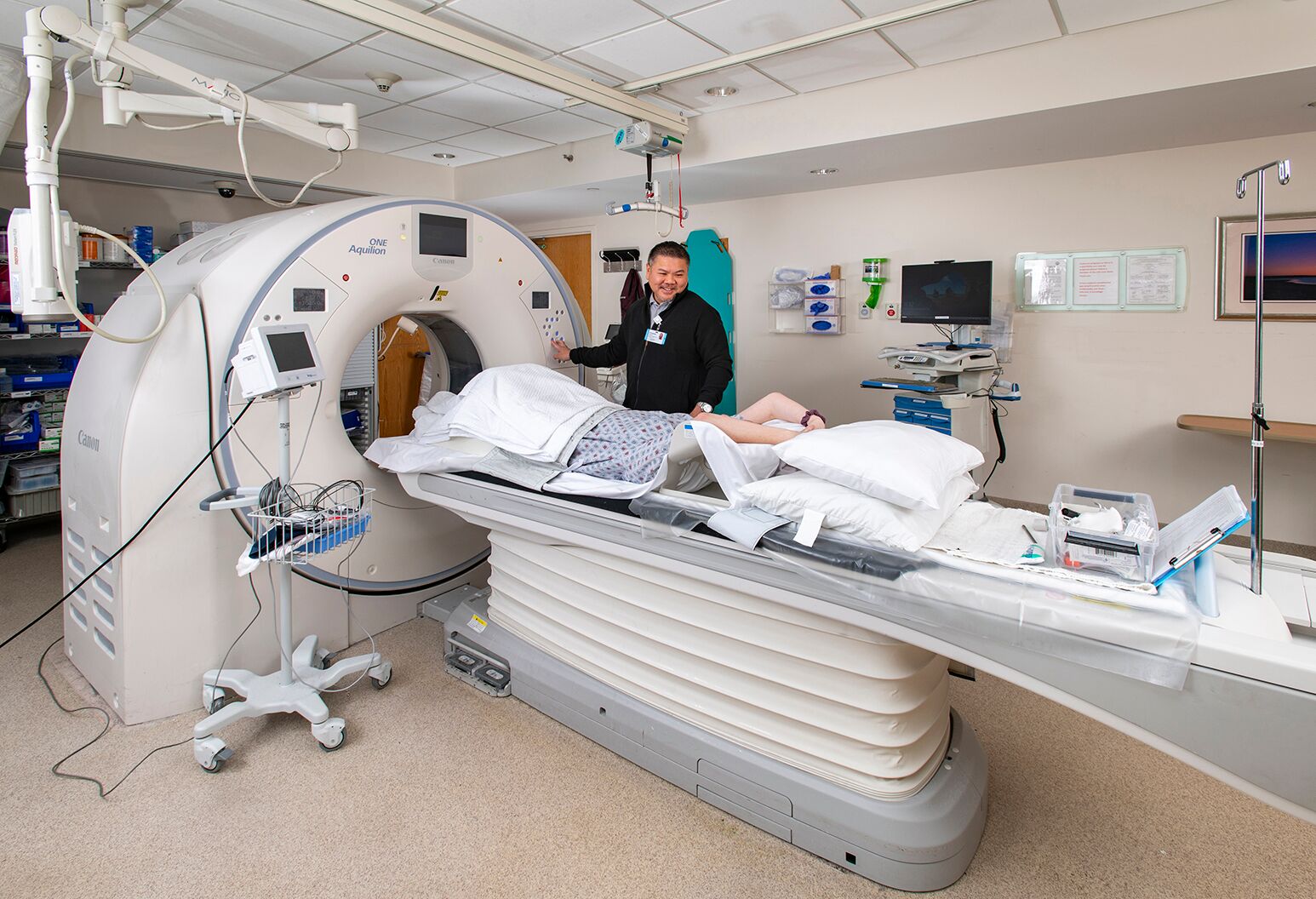Our representatives are available to schedule your appointment Monday through Friday from 9am to 5pm.
For a Northwell ambulance, call
(833) 259-2367.

Heart disease is the leading cause of death in the United States for both men and women, which makes screening invaluable. Called cardiac CT, or coronary computed tomography angiography (CCTA), the test is used to assess heart health in patients, particularly those with chest pain, and determine if heart disease is present.
The test can tell patients if they need additional testing — or if they require medication or should make lifestyle changes, says Amar Shah, MD, Northwell’s chief of cardiac imaging.
“CCTA gives us precise, customizable-to-the-patient, anatomic information that definitively answers whether you have coronary artery disease,” he says. “It provides patients and their doctors with exquisite detail about what their anatomy looks like.”
Cardiac CT can be used in tandem with cardiovascular catheterization and electrophysiology laboratories; cardiologists use these technologies together to diagnose and treat heart conditions in a minimally invasive manner. Here’s what you need to know about cardiac CT.
Cardiac CT is an imaging technique that aims X-rays at the heart from various angles to produce highly detailed 3D images. Radiologists may also inject a contrast dye into your bloodstream to add definition to the images.
Unlike some types of imaging that may take an extended time to produce scans, cardiac CT generates images of a patient’s heart in seconds. Making things even easier, the test requires minimal preparation.
You’ll be asked to fast before the procedure, but the visit — even with check-in and preparation — is so quick it could be done on your lunch hour, says Craig Player, director of imaging services at Mather Hospital. Because there’s no sedation, there’s no downtime or recovery and you can even drive yourself home.
Here’s how cardiac CT works: You’re given intravenous (IV) medication through an IV that helps temporarily lower your heart rate; that’s followed by a contrast agent through the same IV. You may feel a little warm during the scan, but not for long; cardiac CT takes just 30 seconds.
While the agent circulates through your veins, including your coronary arteries, the state-of-the-art scanner takes numerous images from different perspectives and then combines those to produce a 3D model of your heart and its vessels, says Dr. Shah. The results are interpreted by a specially trained cardiothoracic radiologist.
“Although the procedure itself is fast and painless, any type of imaging can lead to anxiety,” he adds. “Fortunately, our imaging team is topnotch at helping you feel calm. From the advanced care practitioners and nurses to the technologists, they are the backbone of patient support, and they excel at making you feel comfortable.”
There are a number of cardiovascular issues that can develop either suddenly or gradually and, either way, may be life-threatening.
“The cause of chest pain can be hard to identify — in fact, a variety of tests can fail to pinpoint why that pain is happening,” says Dr. Shah. “CCTA allows physicians to a get a look at the heart and the surrounding anatomy to understand if the chest pain could be due to coronary artery disease or another, non-cardiac cause instead.”
For example, CCTA can identify obstructions of the coronary artery, an acute pulmonary embolism, a dissecting aortic aneurysm, Covid-19 lung infection and acute inflammation of the heart muscle.
The clear guidance provided by the test can be especially valuable when time is of the essence, such as when chest pain prompts a visit to the ER. “We’ve been using cardiac CT in an emergency room setting for several years, and it’s enabled us to expedite care for patients who need additional cardiac services,” says Adam Wos, MD, emergency department medical director at Mather. “We’re happy to have this available in our community, particularly since it gives us real-time insight into a potential cardiac situation.”
Another advantage of the test: it can significantly reduce the need for other, less informative exams. On its own, it frequently provides all the information required to determine whether a consultation with a cardiologist is necessary, or what types of treatment are required.
“If you have one test that gives you the answer to why you’re experiencing chest pain, that’s obviously ideal, rather than undergoing multiple tests over a period of time,” says Dr. Shah. “CCTA gives us that answer.”
Our representatives are available to schedule your appointment Monday through Friday from 9am to 5pm.
For a Northwell ambulance, call
(833) 259-2367.